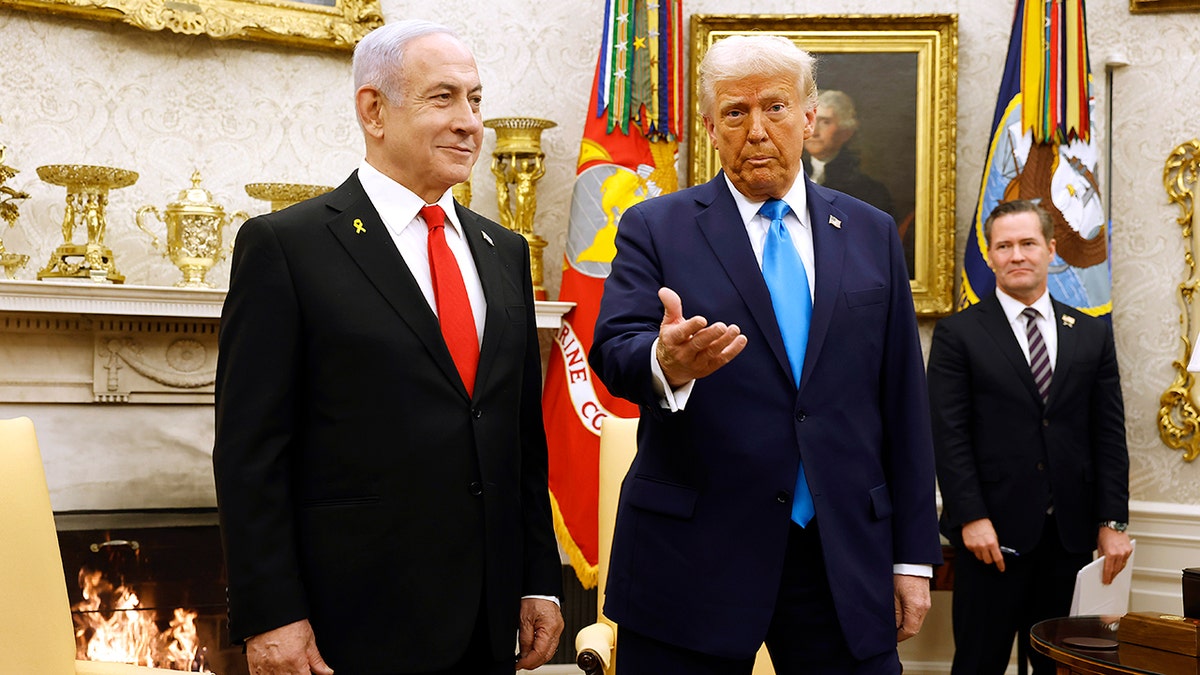In a stunning escalation that could redefine the geopolitical balance in the Middle East, U.S. President Donald Trump has officially confirmed that American forces have joined Israel in launching coordinated strikes on Iran’s nuclear infrastructure. In a televised address, Trump praised the precision and success of the operation, hailing U.S. military leadership for executing what he described as a “decisive action to ensure peace and security in the region.” This marks a historic—and dangerous—turn in the long-standing confrontation over Iran’s nuclear ambitions. Israel, under Prime Minister Benjamin Netanyahu, has for years warned of Iran’s clandestine enrichment programs and their potential to destabilize the region. Shortly after Trump’s announcement, Netanyahu publicly thanked the U.S. President, stating that Trump had once again demonstrated his unwavering commitment to peace and security, not just for Israel, but for the entire Middle East. While the U.S. and Israel are projecting this operation as a pre-emptive move to neutralize an existential threat, the consequences are already rippling across global capitals. Iran’s Islamic Revolutionary Guard Corps (IRGC) has declared, “The war has begun,” vowing retaliatory strikes on American and Israeli interests across the Middle East. Tehran’s capabilities include ballistic missiles, proxy militias, and cyber warfare tools it has employed with increasing sophistication in recent years.
The most pressing question now: How will Russia respond? The Kremlin had previously warned Washington and Tel Aviv against targeting Iran’s nuclear facilities, signalling that such action could invite a broader military conflict. With Russia already deeply entangled in Ukraine, President Vladimir Putin faces a difficult choice. Will he risk opening another front, or will he stand down to avoid overstretch? Given Russia’s long-standing strategic partnership with Tehran, particularly in nuclear technology and arms supplies, it is unlikely that Moscow will sit idly by. Yet with Western sanctions already straining its economy and military resources, a confrontation with NATO powers may be untenable for now. Equally critical is China’s stance. Beijing has, until now, maintained a stoic silence, neither condemning nor endorsing the strikes. But China’s growing economic and military cooperation with Iran—ranging from energy deals to alleged weapons technology transfers—places Xi Jinping in a delicate position. A coalition of Iran, Russia, and China would not only embolden Tehran but also risk igniting a global conflict with unprecedented consequences. The spectre of a Third World War, once considered far-fetched, suddenly feels alarmingly plausible.

President Trump’s supporters argue that he has merely acted where others dithered, citing his doctrine of peace through strength. Critics, however, warn that this could spiral into a catastrophic regional war—or worse. Trump’s earlier diplomatic engagements, including his bizarre flirtation with Pakistan’s military establishment and the fabricated claim that he prevented a war between India and Pakistan, add to the unpredictability of his foreign policy moves. Still, Netanyahu’s call for Trump to be considered for the Nobel Peace Prize may resonate with some, especially those who believe that decisive action, however controversial, is better than appeasement in the face of mounting threats. India, caught in its own escalating tensions with Pakistan following the deadly Pahalgam terror attack, is likely to maintain strategic neutrality. While New Delhi has taken firm steps against cross-border terrorism, including surgical strikes and abrogation of Article 370, it has historically avoided taking sides in conflicts between U.S.-led blocs and nations like Iran and Russia. However, should the situation deteriorate into a global conflict, India’s neutrality may be tested. The strikes on Iran’s nuclear sites may have dealt a tactical blow to Tehran, but they have also lit the fuse of a potentially uncontrollable global conflagration. With nuclear-capable powers posturing, alliances shifting, and proxies mobilizing, the world is on edge. Whether this will lead to long-term peace, as Trump and Netanyahu claim, or to a new era of chaos, remains to be seen. One thing is certain: the Middle East—and perhaps the world—has crossed a dangerous threshold.




